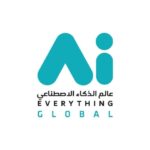A Bold Leap into the Digital Economy
Dubai has once again signaled its ambition to establish itself as a global innovation and technology hub by launching the Dubai AI Platform, accompanied by a dedicated AI Taskforce and a comprehensive Startup Acceleration Program. This initiative represents one of the most ambitious steps yet in the emirate’s strategic vision for a digital economy, reflecting a deep commitment not merely to adopting technology but to embedding intelligent solutions across governance, business, and society. Under the guidance of Sheikh Hamdan bin Mohammed bin Rashid Al Maktoum, Crown Prince of Dubai, the initiative positions the emirate to serve as both a regional and global testbed for AI solutions that are scalable, ethical, and commercially viable.
The initiative is designed to go beyond simple digital modernization; it is about creating a self-sustaining, innovation-driven ecosystem. Public services, private enterprises, and startups will collaborate in ways that ensure AI solutions are not only implemented but optimized for efficiency, productivity, and quality of life. By strategically integrating AI technologies, Dubai seeks to modernize urban management, elevate public services, and enhance economic competitiveness, all while ensuring that the digital economy contributes meaningfully to national GDP growth over the next decade. Beyond technology, this program represents a broader vision of a smart city, where innovation and citizen-centric policies converge to improve governance and social outcomes.
Strategic Goals: Beyond Technology Adoption
The strategic objectives of Dubai’s AI initiative are multi-dimensional, interrelated, and forward-looking, aiming to transform governance, industry, and workforce development simultaneously. The first objective, government digital transformation, focuses on deploying advanced AI systems to optimize urban planning, streamline traffic management, improve energy efficiency, and enhance citizen services. Predictive analytics and real-time monitoring are expected to become central tools in city management, enabling authorities to anticipate challenges, reduce operational inefficiencies, and provide services that are more responsive to the public’s needs. By embedding AI into the core of governance, Dubai reinforces its global reputation as a smart city and demonstrates how technology can be leveraged to improve quality of life at scale.
Another primary goal is to accelerate the startup ecosystem, creating an environment where AI-driven entrepreneurs have access to capital, mentorship, and state-of-the-art digital infrastructure. By supporting startups to develop, test, and commercialize innovative solutions in sectors such as fintech, logistics, healthcare, and sustainability, Dubai aims to cultivate a new generation of companies capable of competing on a regional and global stage. The initiative is structured to offer not only financial support but also strategic guidance, helping young enterprises navigate the challenges of scaling technology in complex markets. This approach ensures that innovation is not limited to idea generation but extends to commercial execution and market impact.
Talent development represents another pillar of this initiative, reflecting Dubai’s recognition of the growing demand for a highly skilled AI workforce. Through scholarships, professional certifications, and collaborations with world-class academic institutions, the program seeks to develop Emirati professionals proficient in AI, data science, machine learning, and digital transformation. By fostering local talent, Dubai addresses immediate skill gaps while also laying the foundation for sustainable human capital development. This strategic focus ensures that technological advancements are supported by a workforce capable of maintaining, improving, and scaling AI systems, positioning the emirate as a knowledge-driven economy.
Finally, the initiative emphasizes ethical AI governance, which is essential for public trust and sustainable adoption. The AI Taskforce will establish frameworks to ensure AI applications operate transparently, respect privacy, and adhere to ethical standards, particularly in sectors with sensitive or high-impact data. By embedding ethics into AI deployment, Dubai sets a standard for responsible innovation, balancing rapid technological advancement with social accountability and regulatory oversight. This dual focus on innovation and ethics ensures that AI solutions can be scaled without compromising societal trust or international credibility.
Dubai AI Platform: The Engine of Innovation
At the heart of this ambitious initiative is the Dubai AI Platform, envisioned as a regional hub for the development, testing, and deployment of artificial intelligence. The platform provides startups, enterprises, and government entities with access to high-performance computing resources, vast datasets, and APIs that allow seamless integration of AI solutions across multiple sectors. By centralizing computational and data infrastructure, the platform reduces reliance on international cloud providers and strengthens Dubai’s autonomy over strategic digital assets.
The Dubai AI Platform is not merely a technical resource; it is a catalyst for cross-sector innovation. Enterprises and startups will be able to deploy AI applications that address local challenges while adhering to global standards. Whether it is predictive analytics for healthcare outcomes, smart traffic systems for urban mobility, or AI-driven energy optimization, the platform provides the necessary infrastructure to translate innovation into measurable impact. Additionally, it includes public-facing AI tools, empowering citizens and small businesses to engage directly with the digital ecosystem. This approach fosters inclusivity, broad participation, and a culture of data-driven innovation across society, creating opportunities for collaboration and co-creation.
The AI Taskforce: Governance Meets Innovation
A crucial component of Dubai’s AI strategy is the formation of the AI Taskforce, a high-level governing body responsible for coordinating AI adoption across government, academia, and private sectors. The taskforce will oversee the strategic deployment of AI technologies while ensuring alignment with Dubai’s broader economic, societal, and technological goals.
The taskforce’s responsibilities include the creation of ethical and operational frameworks, addressing challenges such as bias, accountability, and data privacy. By focusing on sector-specific applications, the taskforce will oversee AI integration in logistics, healthcare, energy management, and other critical industries, ensuring that solutions are both effective and compliant with regulatory and ethical standards. Beyond oversight, the taskforce will act as a bridge between policy and practice, translating high-level strategies into operational programs that drive tangible outcomes.
Talent development is another core focus of the taskforce. By collaborating with leading global institutions, the taskforce will ensure that Emirati professionals receive advanced training in AI, data engineering, and machine learning. This strategy aims to create a sustainable talent pipeline capable of supporting Dubai’s ambitious technological roadmap while maintaining the emirate’s competitive edge in a rapidly evolving global AI landscape.
Startup Acceleration Program: Building the Next Unicorns
Complementing the platform and taskforce, the AI Startup Program is designed to foster innovation by creating a structured, resource-rich environment for emerging companies. Startups participating in the program will receive venture capital support, incubation facilities, mentorship, and networking opportunities with global investors. This combination of financial, technical, and strategic support allows startups to navigate the complexities of the AI ecosystem and accelerate the commercialization of their solutions.
The program focuses on sectors aligned with Dubai’s Digital Economy Strategy 2031, including fintech, healthtech, logistics, and environmental technologies. By nurturing companies capable of developing AI solutions that are both innovative and commercially viable, Dubai aims to produce a new generation of regionally scalable startups with global ambitions. Furthermore, the program integrates with flagship technology events such as GITEX Global and Expand North Star, offering startups exposure to international markets, potential strategic partnerships, and opportunities to benchmark their solutions against global standards.
Sectoral Impacts: How Industries Will Transform
The AI initiative is expected to have profound and transformative effects across multiple industries. In finance, AI-driven systems will enhance digital banking operations, improve credit scoring accuracy, detect fraudulent activity more effectively, and provide predictive risk analytics, making the sector more secure, efficient, and customer-centric. In healthcare, predictive diagnostics, AI-assisted treatment planning, and patient monitoring systems will enable medical practitioners to deliver higher-quality care, optimize resource allocation, and improve patient outcomes, all while reducing operational costs.
Logistics and transportation sectors are set to experience significant transformation as AI technologies such as autonomous vehicles, smart traffic management, and predictive maintenance enhance operational efficiency and reliability. These innovations will reinforce Dubai’s role as a global hub for trade and transportation, improving connectivity across the Middle East, Asia, and Africa. In energy and sustainability, AI-powered solutions will optimize renewable energy deployment, improve smart grid performance, and enhance water management systems, aligning with Dubai’s ambitious green economy objectives and sustainability goals.
The initiative is also expected to drive cross-industry collaboration, creating synergies across urban planning, education, tourism, and public administration. By fostering innovation that transcends individual sectors, Dubai reinforces its vision as a smart, interconnected city, where technology serves as a unifying force to enhance economic, social, and environmental outcomes.
Global Context: Dubai’s Positioning
Dubai’s AI initiative strategically positions the emirate in the global technology landscape, complementing national-level programs in the UAE while distinguishing itself as a city-level operational model for AI deployment. While global powers such as the United States, China, Singapore, and the European Union continue to pursue national AI strategies, Dubai’s approach emphasizes agile policy implementation, rapid testing, and scalable adoption at the urban level. This strategy allows the emirate to adapt more quickly to technological and market developments, creating a competitive advantage in both innovation and investment attraction.
The initiative aligns closely with UAE-wide programs, including the Ministry of Artificial Intelligence and the Mohamed bin Zayed University of Artificial Intelligence (MBZUAI) in Abu Dhabi. By leveraging national capabilities while pursuing city-specific initiatives, Dubai creates a synergistic ecosystem where knowledge, talent, and technological innovation are shared and optimized across the country.
Economic Implications
The AI initiative is expected to attract substantial foreign direct investment (FDI) into Dubai’s technology and startup sectors. By establishing cutting-edge AI infrastructure and governance frameworks, the emirate presents a compelling case for investors seeking opportunities in a stable, innovation-driven regional market. The program will also create high-value employment opportunities in AI research, engineering, data analytics, and technology management, complementing Dubai’s traditional employment sectors and providing a pathway for workforce diversification and upskilling.
Moreover, innovation spillovers are anticipated, where AI solutions developed locally can be exported regionally and globally. These spillovers will enhance Dubai’s influence across the Middle East, fostering technological adoption in neighboring countries while reinforcing the emirate’s status as a regional innovation leader.
Looking Ahead: Dubai’s AI Roadmap
In the short term, Dubai’s focus will be on the successful deployment of the AI platform, operationalization of the AI Taskforce, and onboarding of the first cohort of startups. These foundational steps are critical to establishing a robust infrastructure and governance model. Over the medium term, Dubai aims to achieve sector-wide AI adoption, measurable improvements in public service efficiency, and the creation of strong global partnerships to facilitate knowledge transfer and collaborative innovation.
Long-term ambitions include positioning Dubai as a global AI hub, exporting both technological solutions and best practices in ethical governance to international markets. This vision encompasses a sustainable innovation ecosystem that combines local talent development, global investment, and cross-sector technological adoption, solidifying Dubai’s leadership in AI and smart city innovation.
Conclusion
Dubai’s AI initiative represents a strategic, multi-layered blueprint for economic, societal, and technological transformation. By integrating state-of-the-art infrastructure, a skilled talent pipeline, startup acceleration programs, and ethical governance frameworks, the emirate is redefining the role of AI in urban and economic development.
This initiative underscores Dubai’s commitment to leveraging AI not merely as a tool for operational efficiency but as a catalyst for regional competitiveness, sustainability, and innovation leadership. The success of this initiative will hinge on the emirate’s ability to balance rapid technological adoption with ethical governance, attract and retain top-tier talent, and foster meaningful collaboration between government, industry, and startups. If executed effectively, Dubai is poised to set a global benchmark for AI-driven urban and economic development, establishing a model for cities worldwide.
Related Blogs: https://arabworldleaders.com/







